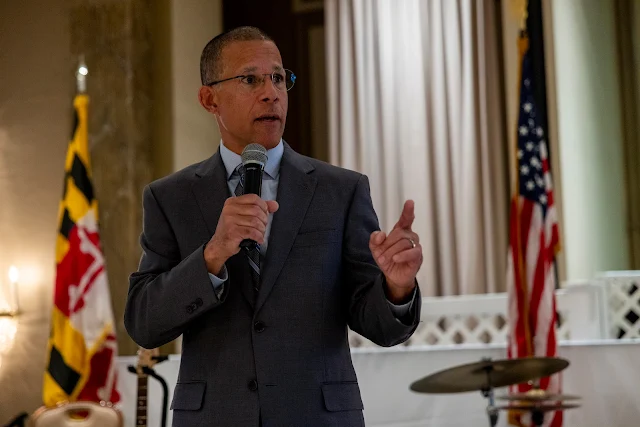Maryland Attorney General Brown backs federal ocean justice strategy to address communities historically excluded from policy decisions
http://newsofpedia.com/us-news
Per the Maryland State’s Attorney’s Office: Maryland Attorney General Anthony G. Brown today joined a coalition of six attorneys general to submit a comment letter in support of the Biden administration's development of a national defense strategy. ocean justice. Certain communities ("ocean justice communities") have historically been excluded from ocean policy decisions - including Black, Indigenous and People of Color (BIPOC) communities as well as people with disabilities, low-income communities, youth and people older people - and Ocean Justice aims to bridge these disparities.
"Maryland's 3,000 miles of coastline along the Chesapeake Bay and Atlantic Ocean are part of our shared heritage, but for too long some communities have been excluded from policy decisions that impact their lives and their environment," Attorney General Brown said. "Ocean justice is not just about protecting our oceans and coasts, it's about coming together to right these past injustices, while protecting our environment and leaving a lasting legacy for generations to come."
The Council on Environmental Quality, which was created by the National Environmental Policy Act in 1969 and serves on the Executive Office of the President, issued a Request for Information on June 8, 2023, seeking public input on what the vision and goals of the Ocean Justice Strategy should be. Today's comment letter responds to that request. In the letter, the coalition suggests the following goals to be included in the Ocean Justice strategy:
- Equitable public access to oceans, coasts and the Great Lakes. States encourage the federal government to partner with them to ensure equitable public access to the coasts, among other things, by leveraging federal funding to improve coastal access facilities for ocean justice communities and exploring ways to allow public access to coastal areas on or through federal property.
- Mitigate the impacts of air pollution sources on nearby ocean justice communities. Ocean justice communities are disproportionately affected by air pollution from coastal and maritime sources such as refineries, oil and gas terminals, power plants, diesel-powered ships, cargo equipment, and diesel trucks in ports.
- Comprehensively identify all of the disparate harms that ocean justice communities face due to various sources of pollution. In addition to air pollution, Ocean Justice communities experience disproportionate harm from other sources that affect their health and livelihoods, including water pollution that affects local fisheries, toxic and hazardous waste sites, and agricultural runoff.
- Equitable management and protection of oceans, coasts and the Great Lakes. States encourage the federal government to implement co-management of the oceans, coasts, and Great Lakes with Tribes and Indigenous Peoples. The states also recommend increasing funding for the National Oceanic and Atmospheric Administration (NOAA), which is responsible for enforcing environmental laws on more than 4 million square miles of ocean.
- Addressing and repairing past wrongs and injustices. To address past inequitable takings of coastal assets by ocean justice communities – whether under the guise of eminent domain or through physical force – the ocean justice strategy should redress these grave injustices and follow the example of states and localities already working on it.
- Equitable adaptation to climate change. As rising sea levels threaten coastal infrastructure, the federal government should ensure that its coastal adaptation strategies do not inadvertently increase the burdens on ocean justice communities.
- Meaningful engagement of ocean justice communities early in the process of any federal action. The federal government should establish a Community Advisory Board comprised of local residents and tribal communities to review and provide feedback on project proposals, as well as to hold community meetings at times and places convenient to community members. . affected, like after hours. from 6:00 p.m. to 9:00 p.m., and in places in the community such as recreation centers and libraries.






No comments